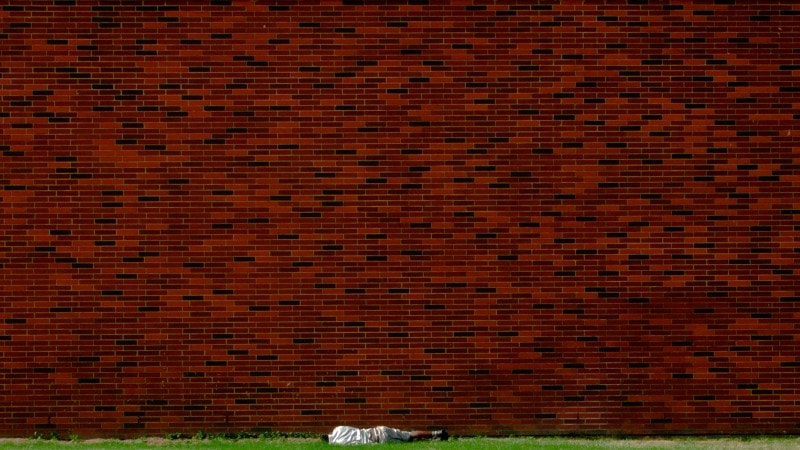Digital Citizen is a biweekly review of news, policy, and research on human rights and technology in the Arab World. This volume takes a look at harsh penalties for critical speech on social media in Mauritania, Tunisia and Bahrain, as well as new research on surveillance from Al Akhbar English and PEN America.
Bahrain
Women’s rights activist and blogger Ghada Jamsheer was released from prison on Dec. 15, after spending three months in prison for posting “insulting” and “defamatory” tweets. Jamsheer is now under house arrest awaiting trial.
Egypt
The Prime Minister announced the impending launch of a council for cybersecurity that will be tasked with developing and implementing an anti-cybercrime strategy.
Police detained Activist Karam Zakariya, charged him with posting “instigative” comments on Facebook and seized his laptop. According to his supporters, he merely “liked” the Facebook page in question. Zakariya is a member of the April 6 movement, which opposed both Hosni Mubarak and Mohamad Morsi.
A student unionist is facing investigation by the administration of his university for writing Facebook posts that depicted the anger of his fellow students and the problems they are facing.
Egypt’s Court of Cassation ordered the retrial of three Al Jazeera journalists jailed for over a year. Peter Greste, Mohamed Fahmy, and Baher Mohamed were denied bail and will remain in prison until their retrial.
Kuwait
On Jan 5, the Kuwaiti Court of Cassation sentenced blogger Saqr Al-Hashash to 20 months in prison for insulting the Emir. Al-Hashash was previously acquitted on the same charge by the criminal court.
A day later, former opposition lawmaker Saleh al-Mulla was detained over tweets critical of a recent visit by Egyptian president Sisi to Kuwait. Al-Mulla was accused of threatening Kuwaiti-Egyptian relations and insulting the Emir.
Mauritania
A Mauritanian court sentenced blogger Mohamed Cheikh Ould Mohamed to death for apostasy, over an article he published on the web more than a year ago. In the article, Mohamed criticized his country’s controversial caste system. In a recent editorial, Global Voices’ Afef Abrougui argues that politics, not religion, is the chief driver of cases like this one. She writes:
How does a regime get rid of political opponents and critics in countries where religion plays an important role in the lives of the majority? One way is to throw them in jail and say they insulted Islam and its Prophet. That way (almost) no one will come to their rescue.
Oman
Blogger Mohammed Al-Fazari, who published articles exposing government corruption, was arrested on 22 Dec. after authorities at Muscat International Airport informed him of a travel ban imposed on him. He was released in the evening of the same day.
Writer Ali Al-Rawahi was released after spending four days in detention for posting two tweets in which he discussed corruption and urged people to demand the protection of their fundamental rights.
Palestine
Israeli authorities arrested eight Palestinians in mid-December on charges of “inciting hatred, violence and terrorism” on Facebook. One of the men had posted a photograph of himself holding an M16 assault rifle.
A spokesman for the Israeli military said that the operation was one of their “biggest, aimed at repressing this kind of incitement to violence on social networks and the Internet.” In late December, an Israeli court extended the detention of five of the individuals.
Saudi Arabia
According to a recent report, Saudi Arabia’s Commission for the Promotion of Virtue and the Prevention of Vice (Haia) has disabled 9,000 Twitter accounts that were allegedly used to distribute pornography, which is banned in the kingdom. They also stated that “ethical hackers” have allowed police to “access personal details of those who operated accounts, leading to their arrest.”
Syria
The University of Toronto’s Citizen Lab discovered a malware attack targeting Syrian critics of the violent extremist group known as ISIS (Da’esh). The targeted group, Raqqah is Being Slaughtered Silently (RSS), focuses its advocacy on documenting human rights abuses by ISIS occupiers of Raqqah.
A year after the disappearance of four Syrian activists in Douma, supporters launched a campaign Free #Douma4 to re-energize the search for the abducted activists and call for their release. The Douma Four were members of the Violations Documentation Center and prominent leaders of the non-violent opposition movement.
Tunisia
Tunisian blogger Yassine Ayari was arrested in late December upon returning to Tunis from a trip abroad and taken directly to jail. The military prosecutor said that Ayari had been sentenced in absentia in November to three years imprisonment on charges of defamation against army officers and senior defense ministry officials. Supporters are calling for Ayari’s freedom on Facebook.
Research
-
-
PEN America has released its second report on the effect of surveillance on writers
-
-
Lebanon’s Al Akhbar English has published a guide to “knowing your e-rights” in Lebanon.
From our partners
-
-
Access has published an article on the need for global surveillance reform.
-
-
-
7iber summarizes Glenn Greenwald’s recent videoconference to Beirut.
-
-
EFF’s Jillian York published a short piece on digital rights in the Arab world in 2014.
Upcoming events
-
-
RightsCon Manila, March 24-25
-
-
-
World Social Forum (Tunis), March 24-27
-
-
re:publica (Berlin – now accepting talk proposals!), May 5-7
Digital Citizen is brought to you by Advox, Access, EFF, Social Media Exchange, and 7iber.com. This month’s report was researched, edited, and written by Afef Abrougui, Mohamed ElGohary, Courtney Radsch and Jillian C. York and translated into Arabic by Mohamed ElGohary.


